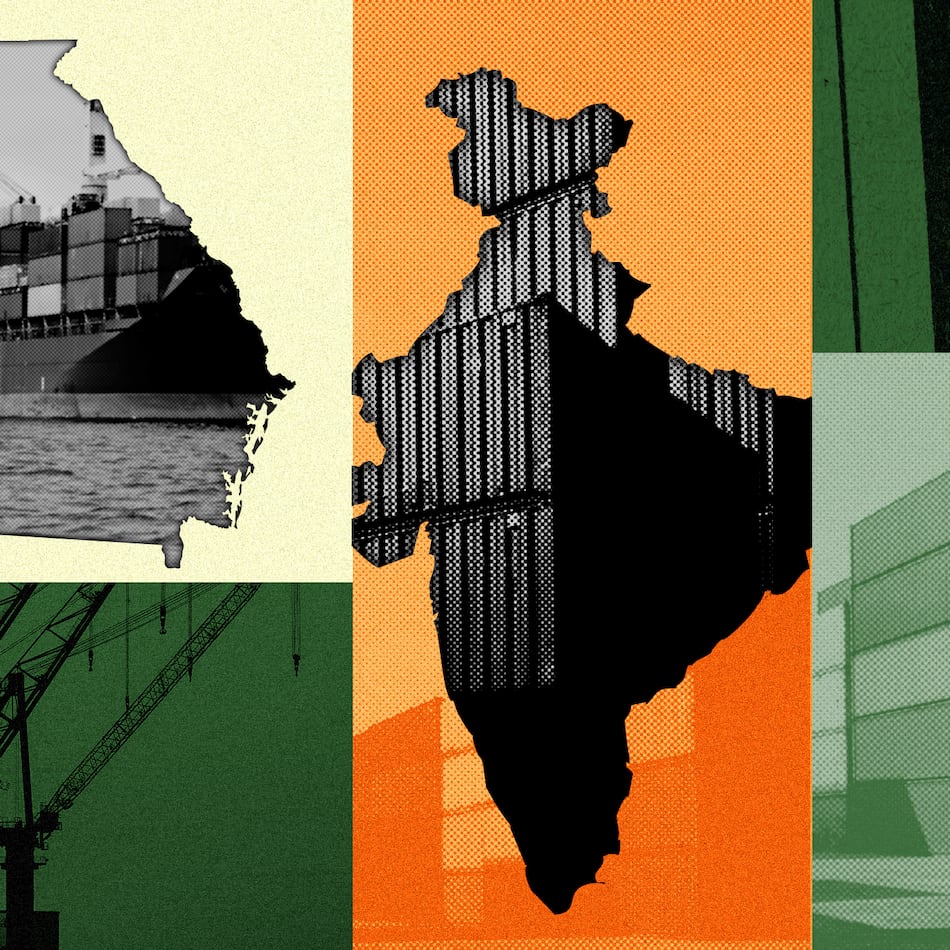WASHINGTON (AP) — President Donald Trump said Tuesday that he will direct federal law enforcement intervention to combat crime in Chicago and Baltimore, despite staunch opposition from elected leaders and many residents in both cities.
Asked by reporters in the Oval Office about sending National Guard troops to the nation's third-largest city, Trump said, “We’re going in,” but added, “I didn’t say when.”
“I have an obligation," the president said. ”This isn't a political thing."
Illinois Gov. JB Pritzker, a potential 2028 Democratic presidential contender, scoffed at the notion of sending military troops and federal agents into Chicago, reiterating Tuesday that federal intervention was not required or wanted.
Trump has already sent National Guard troops into Los Angeles and Washington, D.C., where he's also federalized the police force. He has said he plans similar moves in other Democrat-run cities even as a federal judge on Tuesday deemed the California deployment illegal.
Trump criticizes leaders in Chicago
The president praised Washington Mayor Muriel Bowser for working with federal forces, but repeated his criticism of Pritzker and Chicago Mayor Brandon Johnson, a Democrat.
Trump said he’d love to have Pritzker call and say, “Send in the troops” — even though the two-term governor has repeatedly said he won’t be doing that.
“If the governor of Illinois would call up, call me up, I would love to do it,” Trump said. “Now, we’re going to do it anyway. We have the right to do it.”
Pritzker deemed Trump’s comments to call him for help as “unhinged.” The two have been locked in an escalating war of words for days as Trump called Chicago “the world's most dangerous city” earlier Tuesday.
“No, I will not call the president asking him to send troops to Chicago,” Pritzker said Tuesday at a news conference with Johnson and other leaders. “I’ve made that clear already.”
Illinois notified of federal plan
The state received its first contact about federal intervention on Saturday when the head of the Illinois State Police got a call from Gregory Bovino, chief of the Border Patrol’s El Centro, California, sector, saying immigration agents would come to Chicago, according to Pritzker. The governor said no further details were offered.
Pritzker urged the public not to let the presence of federal agents spark tensions in the city but asked residents to look out for neighbors, and film and share interactions with federal agents.
“Authoritarians thrive on your silence,” he said. “Be loud for America.”
Chicago has been bracing for the expanded federal presence, with activists, pastors, schools and other groups prepared for the deluge of national attention.
Even without knowing exactly what is coming, the city’s organized activist network began circulating protest schedules, vowing to demonstrate in the city’s downtown core within hours of troops or federal agents arriving.
The measures are familiar in a city that has long tried to counteract President Donald Trump's bid to deport more people, including adding more staff at a hotline to report immigration arrests and advising that families develop phone trees as a support system for kids in school.
“We know that the potential of increased federal presence is creating anxiety and fear about safety at school and safety within the broad community,” Chicago Public Schools, the nation's fourth-largest public school system, recently told parents.
Dozens of pastors published a letter to Trump in the Chicago Sun-Times Tuesday, saying the root cause of violence was underfunded schools, unemployment and a lack of healthcare and adequate food.
“To the faithful of Chicago, I say this: prepare your hearts for resistance,” the letter said.
Crime in Chicago
Johnson said violence in the city stems from guns on the streets that are trafficked to Illinois from neighboring states, including Republican-led Indiana.
“Chicago will continue to have a violence problem as long as red states continue to have a gun problem,” Johnson said.
Echoing a trend in other major U.S. cities, Chicago’s violent crime has dropped significantly overall, though it remains a persistent issue in parts of the city.
Recently, the Trump administration has renewed interest in the city’s daily crime log, including using a spate of shootings during the Labor Day weekend as justification for increased military presence.
Chicago’s homicide rate is 21.7 per 100,000 residents in 2024, according to analysis of federal crime data by the Rochester Institute of Technology. It cites seven other major U.S. cities — St. Louis, New Orleans, Detroit, Washington, D.C., Atlanta, Indianapolis and Richmond, Virginia — with higher rates.
Chicago reported 573 homicides in 2024, the most of any U.S. city that year. But violent crime dropped significantly in the first half of the year, representing the steepest decline in over a decade, according to city data. Shootings and homicides were down more than 30% in the first half of 2025 compared to the same time last year.
Illinois Attorney General Kwame Raoul has said the city and state will sue once the federal intervention begins.
“While Chicago’s crime problem is serious, it is far from the worst in the country,” Raoul said. “The president’s plan is not about fighting crime. It’s purely performative.”
Trump calls intervention necessary
Trump also said Tuesday that he has an “obligation to protect this country, and that includes Baltimore.” Local officials there have joined Democratic Maryland Gov. Wes Moore in similarly opposing federal law enforcement intervention.
Trump said his efforts in Washington have ensured it “is now a safe zone. We have no crime.”
The White House announced separately Tuesday that more than 1,650 people have been arrested since the Trump administration first mobilized federal officials on Aug. 7.
“And this city was really bad," Trump said. He said, “we're really proud of” federal efforts to curb crime in Washington.
___
Tareen reported from Chicago.
The Latest
Featured


